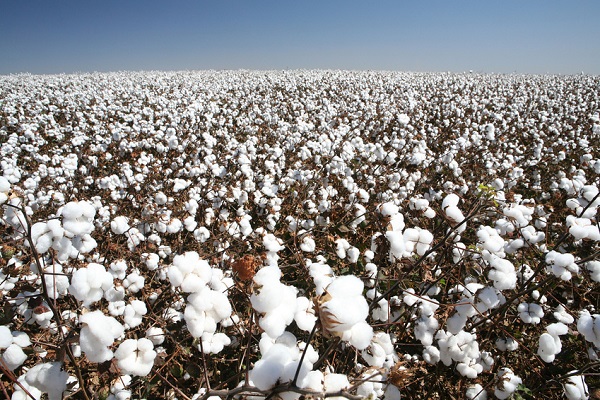In January, Xinjiang Technical Institute of Physics & Chemistry, of Urumqi, China, inked a deal with Shenzhen Sifang Fine Chemicals to build a facility in Shenzhen to produce biodegradable lubricants using XTIs strength in ester oils and vegetable oils.
According to the XTI, a branch of the China Academy of Sciences, its researchers recently used sunflower oil and cottonseed oil to develop two copolymers that have higher viscosity than esters typically used as lubricant base stocks. Xinjiang is a famous cotton-growing region, and XTI says the plenteous harvests there help minimize costs for the copolymers. Cost has been one of the main factors limiting ester penetration in the lubricants industry, and XTI claims that low viscosity can be another disadvantage.

Photo: lulu / Fotolia
Xinjiang Technical Institute of Physics & Chemistry and Shenzhen Sifang Fine Chemicals are investing in a project that will make biodegradable base stocks from cottonseed and sunflower oil.
Chinese refiners have made numerous investments in recent years in plants that make mineral base oils, but such investments in the biodegradable base stocks are rare. China does not lack for lubricants marketed as green, but the term is usually used for finished products made from highly refined mineral oils, API Group II+ or Group III, that help improve fuel economy.
The XTI-Sifang Fine Chemicals is eye-catching because it involves biodegradables.
Biodegradable is not the buzzword in Chinas lube industry, Gong Wei, analyst at SCI International, a consulting firm based in Zibo, Shandong province with a focus on energy and chemicals, told Lube Report Asia.
Chinese lube companies, at the current stage, are very much focused on buying Group II base stocks with high viscosity and Group III base stocks, usually from overseas, to produce high quality lubes, he said.
The only exception, he added, is esters, which are supplied by a number of foreign and Chinese companies.
For example, Malaysia-based Klk Oleo is a leading supplier of esters in China. Since entering China three years ago, the company sells 3,000 to 4,000 metric tons per year of fatty esters under the brand name Palmester, said its China sales manager Maggie Yan.
Our esters are mostly used to produce metal working fluids and hydraulic oils. Some of them are made from palm oil, so they are biodegradable, she said. Yan added that Klk Oleo owns palm farms and that this gives it advantages in terms of quality and prices.
We grow palm trees, have our own research teams and manufacture in our own facilities, so that we can control the entire supply chain. Thats why we offer stable quality with competitive prices, she said.
Palmester 2083, for example, is such an ester. According to the company, it is trimethylolpropane trioleate, best used for producing biodegradable, fire-resistant hydraulic oils and metal working fluids, as its flash point is as high as 294 degrees C, while the pour point is as low as -51 C.
Other big companies like Sinopec and ExxonMobil are also offering biodegradable ester oil-based lubes in China, mostly for industrial use, but in recent years a number of medium sized domestic companies have also joined the field.
Consider, for example, Hangzhou-based Youmi Chemical. Its product portfolio includes monoesters, pentaerythritol, trimethylolpropane triacrylate, borate, fatty alcohols and fatty acid.
Our esters can be used under a wide temperature range, from -58 C to 280 C. Most of them are eco-friendly and biodegradable, said Wan Liexiong, senior engineer at Youmi.
Unlike Klk Oleo, Youmi does not own any palm garden, instead, it buys materials such as palm oil and coconut oil from suppliers, which might be the reason for the higher price tag that is similar to polyalphaolefins, said Wan.
But still, the prices are not that high. We dont want scare away the potential clients by charging too much because we are still testing the market, Wan said, adding the company sells about 1,000 tons of esters each year.
However, the testing period for Youmi probably will not end soon as China is not ready to embrace the expensive biodegradable esters, said SCIs Gong Wei.
These ester oils are too expensive compared with mineral oil-based base oils. I think the market will remain marginal for a while, he said.
Gong is also not optimistic about the business for Youmi-like small to medium sized companies, saying they lack research capabilities and the fund needed.
In China, large companies like Sinopec and CNPC have their own research arms and the budget for the research. For SMEs, the best they can do is to work with other research institutes, but most of them dont even have the money to support the projects, he said. Therefore, the small market is dominated by multinational and big Chinese brands because the quality can be trusted.
However, a silver lining for SME ester makers could be Chinas recent new policy, which allows Chinese companies to export base oils, lubes and greases. Previously, export of these products were basically banned.
Gong said this could be a great challenge for Chinese companies because they had little experience in the global market, but it could also serve as an opportunity for them to improve technologies in terms of performance and environmental protection to meet strict regulations in the European Union and United States.
Without the refining process, ester oils could be a relatively easier option for export, especially to the emerging markets which dont have strict regulations like the developed markets, Gong added.